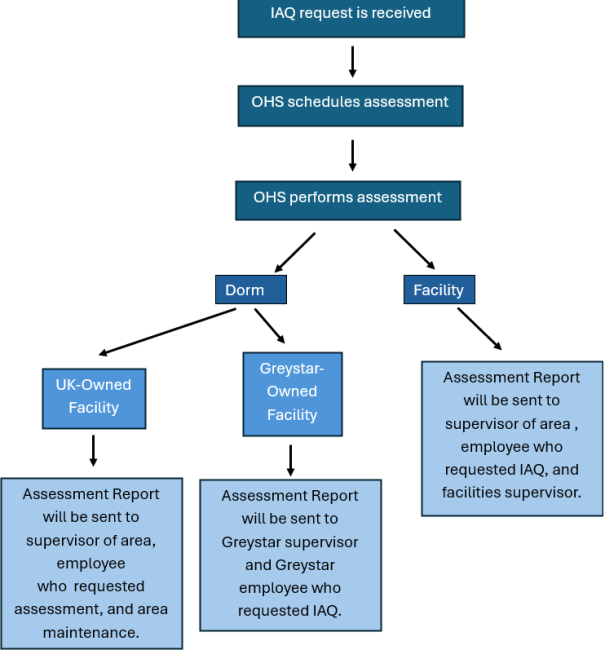The University of Kentucky is committed to maintaining safe and healthy environments for work, study, and research. As part of this commitment, the university investigates concerns and complaints related to indoor air quality (IAQ) and strives to address potential air quality issues proactively.
While there are no specific federal regulations governing IAQ in the workplace, Occupational Safety & Health (OHS) follows several recognized standards and best practices when evaluating IAQ concerns. These include:
- ASHRAE 62.1 – Ventilation for Acceptable Indoor Air Quality
- ASHRAE 55 – Thermal Environmental Conditions for Human Occupancy
- IICRC S520 – Standard and Reference Guide for Professional Mold Remediation (American National Standards Institute / Institute of Inspection, Cleaning, and Restoration Certification)
To request an indoor air quality survey, please email OHS@uky.edu
